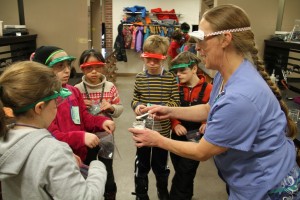 Spring Break Science & Engineering Camps for Grade 1-3, Grade 4-6 offered Mar. 31, April 1-2
Spring Break Science & Engineering Camps for Grade 1-3, Grade 4-6 offered Mar. 31, April 1-2
Classes meet 9 a.m. to 4 p.m. in the Great Lake’s Research Center.
Cost: $120 per student. Up to 20 students per class. Register soon!
Register Online: Spring Break Science Camp Registration or http://www.wupcenter.mtu.edu
Pay by credit card: call the cashier 7-2247 (Your space is not reserved until payment has been received.)
Questions? Call: 7-3341
Grade 1-3 Engineering in Our World!
Learning about the engineering design process, each day of camp will present a different challenge to solve: designing bridges, improving play dough and designing walls. Following the Engineering is Elementary curricula for grades 1-3, campers will explore chemical engineering, materials engineering and civil engineering with visits from real engineers to the class.
Instructors: Marcy Erickson, Michelle Miller and Lloyd Wescoat
Grade 4-6 A Taste of Tech!
Kids will explore a variety of labs and do some cool engineering activities along the way!
- Watch worms at home in the soil with a visit to the Rhizotron
- Take a hike on Tech Trails
- Bend water and make silly putty at the chemistry lab
- Try out a real driving simulator with mechanical engineers
- Smash concrete and test a Maglev track with civil engineers
- Have fun with trains with transportation engineers.
- And enjoy a free lunch at Michigan Tech (MUB) on Thursday, compliments of the Michigan Tech Transportation Institute
Instructors: Joan Chadde, Chris Hohnholt, along with Michigan Tech faculty and students.
Learn more at the Western UP Center for Science, Mathematics and Environmental Education.
Spring break science
Camp offers hands-on learning
“We like to have these camps because it’s an opportunity for these kids to learn about science and engineering in a hands-on way,” said Joan Chadde, director of the Center for Science and Environmental Outreach, which co-sponsored the event along with the Western Upper Peninsula Math and Science Center and the Great Lakes Research Center. “They’ve got available time, being out of the classroom, and it’s challenging for teachers to do a lot of hands-on projects.”
Read more at the Mining Gazette, by Garrett Neese (subscription required).